Pope Francis calls for humanitarian corridors in besieged Gaza
Pope Francis has called for the establishment of humanitarian corridors to allow the delivery of essentials to the besieged Gaza Strip, which is under heavy Israeli bombardment.
The pontiff made remarks at his weekly address at St. Peter's Square on Sunday.
"Humanitarian law must be respected, especially in Gaza, where it is urgent and necessary to guarantee humanitarian corridors and help the population," said the Pope.
Pope Francis strongly urged "that children, the sick, the elderly, women and all civilians should not fall victim to the conflict".
On October 7, the Palestinian resistance movement Hamas launched multi-pronged strikes on Israel and penetrated deep into the territories occupied by the regime for decades. Operation Al-Aqsa Storm took Israel by surprise. It was a response to the regime’s recurrent desecration of al-Aqsa Mosque and decade-long atrocities against the Palestinians.
Israel responded by indiscriminate bombardment of civilian buildings and infrastructure and imposing a total siege on the Strip. Gaza, home to more than 2.3 million Palestinians, has been running vitally low on fuel, electricity, water and food.
So far, Israel has killed more than 2,450 Palestinians, including women and children, in Gaza.
The Israeli aggression on the Gaza Strip has now reached its 9th day.
Israeli energy minister Israel Katz said on Monday that he had instructed authorities to cut the water supply to the Gaza Strip.
The move came after Israeli minister of military affairs Yoav Gallant decided to impose a “complete” siege on Gaza, saying no electricity, food, water or fuel would reach the Strip.
Israel has already closed all crossings with the Gaza Strip in both directions.
Israel also later ordered residents of Gaza City to evacuate the area within 24 hours, in what is viewed as a precursor of a ground invasion by the occupying entity after suffering a serious setback by the Palestinian resistance groups over the past few days.
In a statement released on Friday, Israel's military called on all people living north of the Gaza Strip, which amounts to more than one million, to relocate south.
The Israeli military said it would operate "significantly" in Gaza City in the coming days and civilians would only be able to return when another announcement was made.
UN Secretary-General Antonio Guterres has said that crucial life-saving supplies, including fuel, food and water, must be allowed into Gaza.
UN spokesman Stephane Dujarric has also said: “Civilians need to be protected. We do not want to see a mass exodus of Gazans.” “We need rapid and unimpeded humanitarian access now.”
In recent days, Some regional countries have discussed the idea of delivering humanitarian aid through the Rafah crossing between Gaza and Egypt’s Sinai Peninsula.
The Gaza Strip, home to 2.3 million people, is under a years-long siege by the Israeli regime.
Reports indicate that people in Gaza have no desire to leave despite the Israeli blockade and living through five brutal wars since 2008.
Israel ‘serious obstacle’ to nuke-free West Asia: Iranian diplomat
High-profile Israeli-American brothers on trial for sex trafficking and assault
Settlers served lavish lunch in Israeli prison holding fasting Palestinians
VIDEO | Press TV's news headlines
Hezbollah says won’t hesitate to take proper action against aggression
Iran to US: Sanctions and war failed; try diplomacy and respect
VIDEO | Afghanistan-Pakistan tensions rise after cross-border strikes
Israeli settlers set mosque ablaze in West Bank during Ramadan


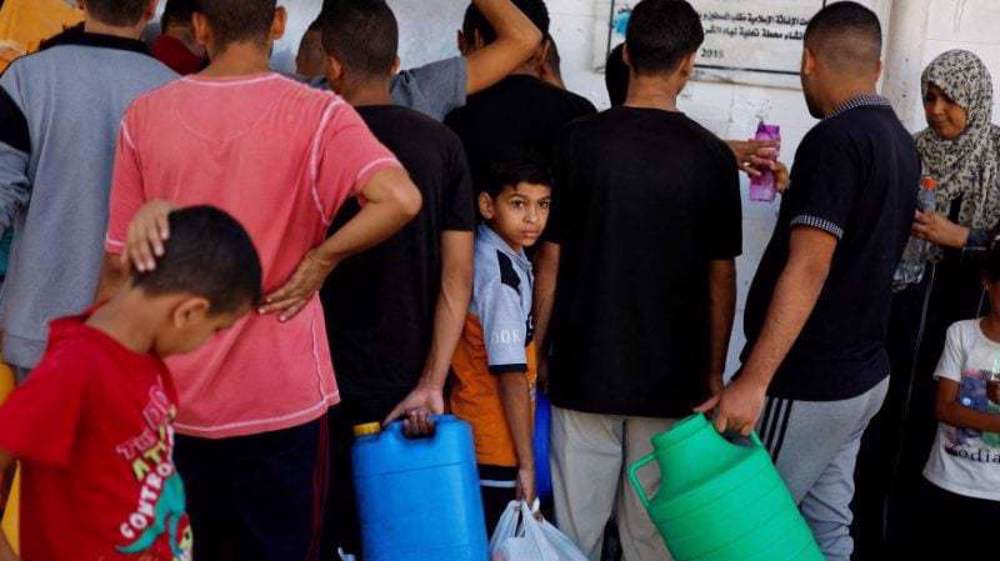
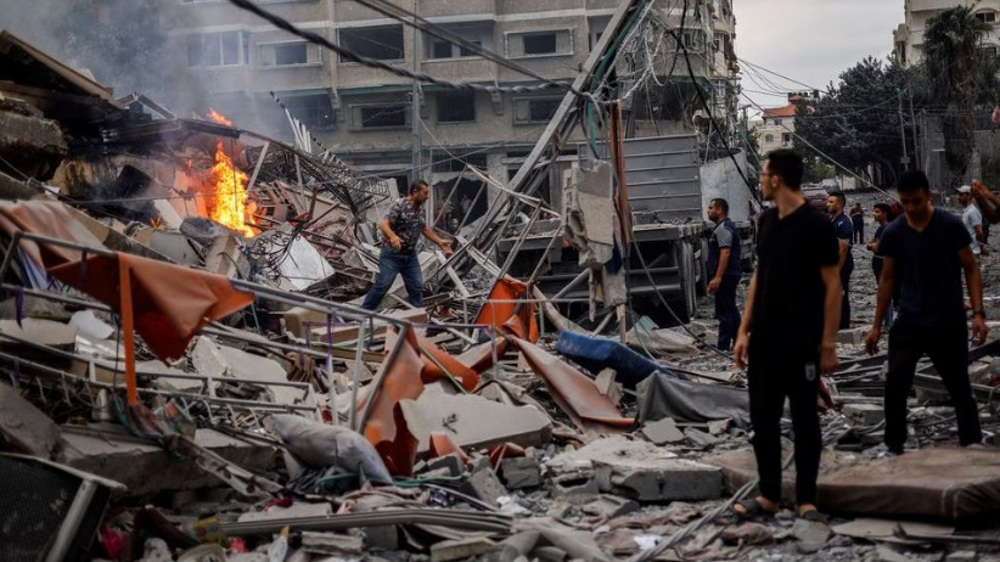
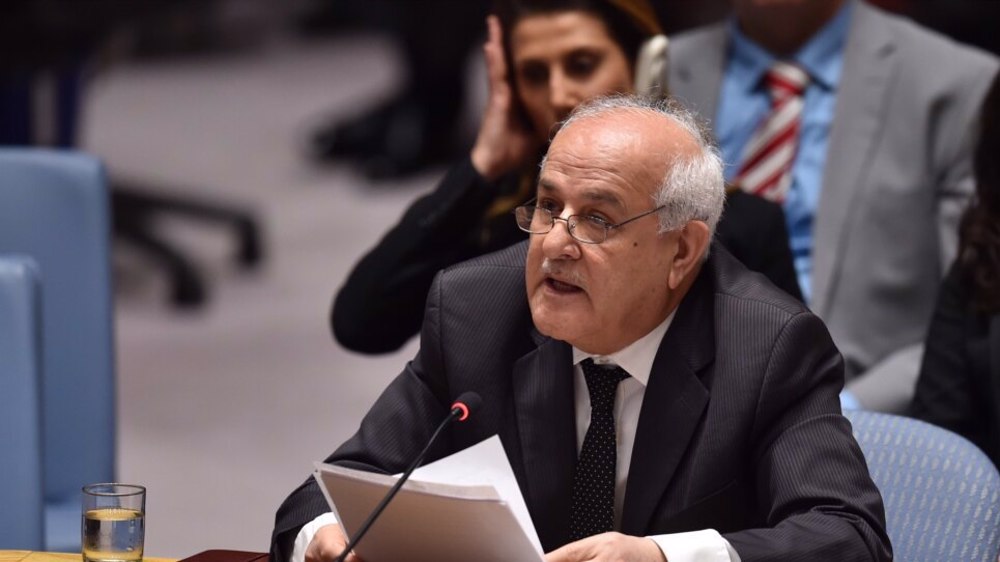

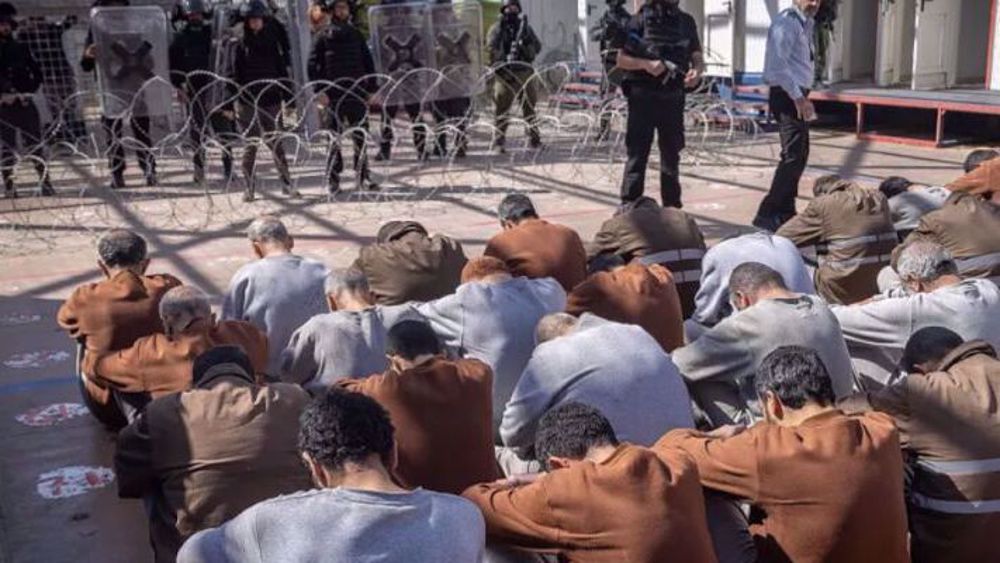
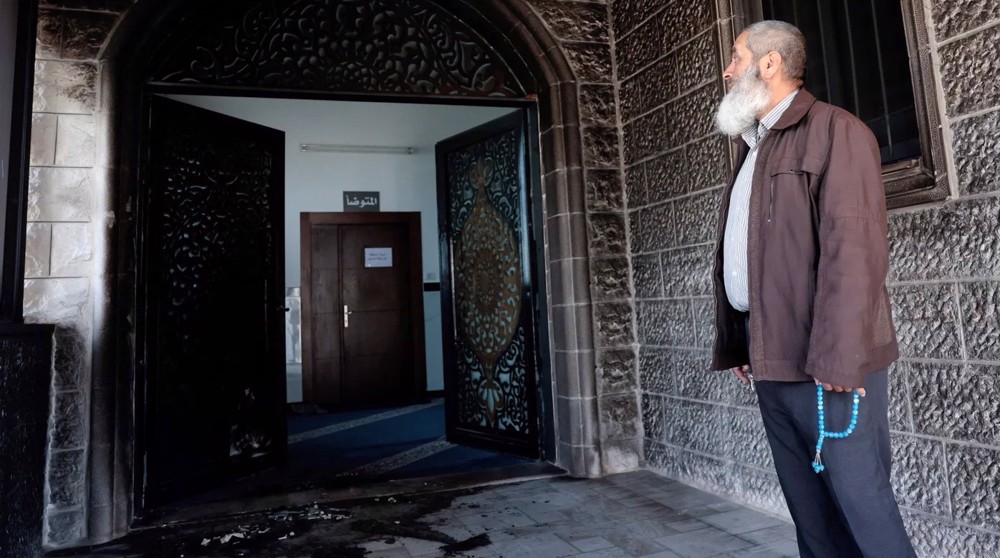



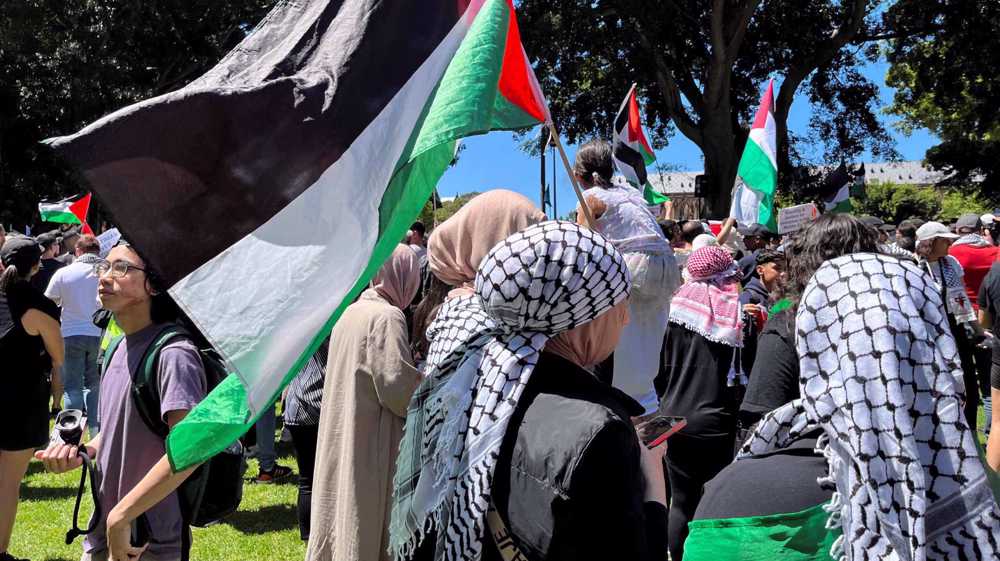
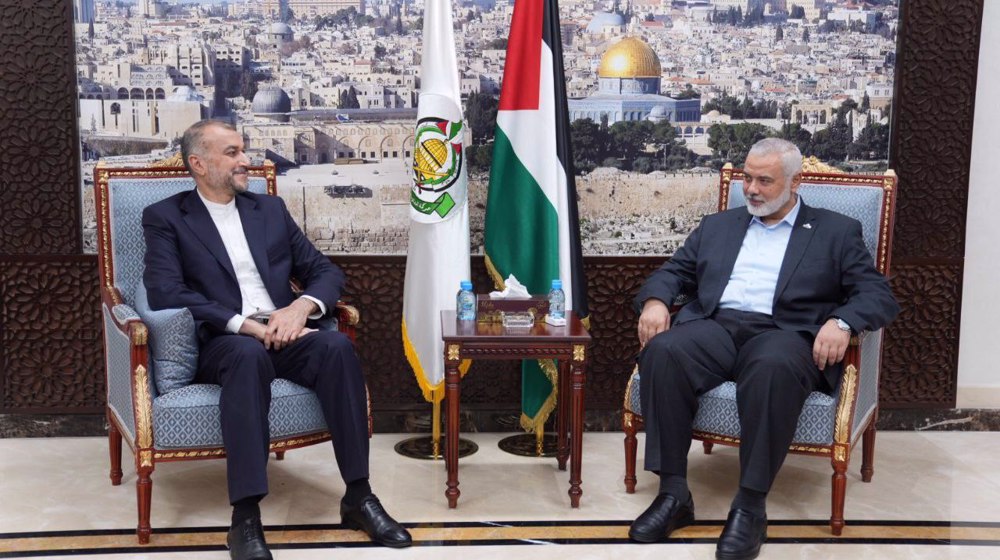
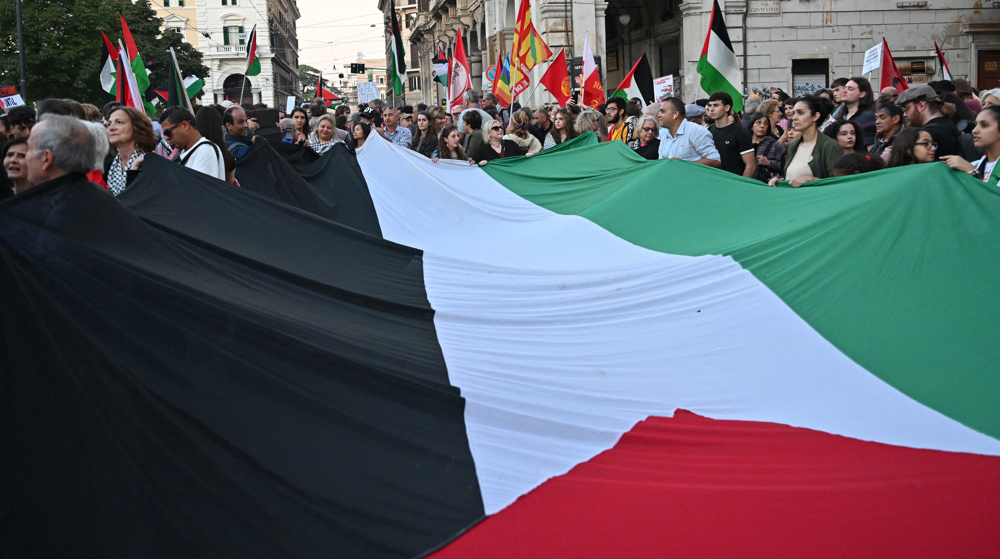
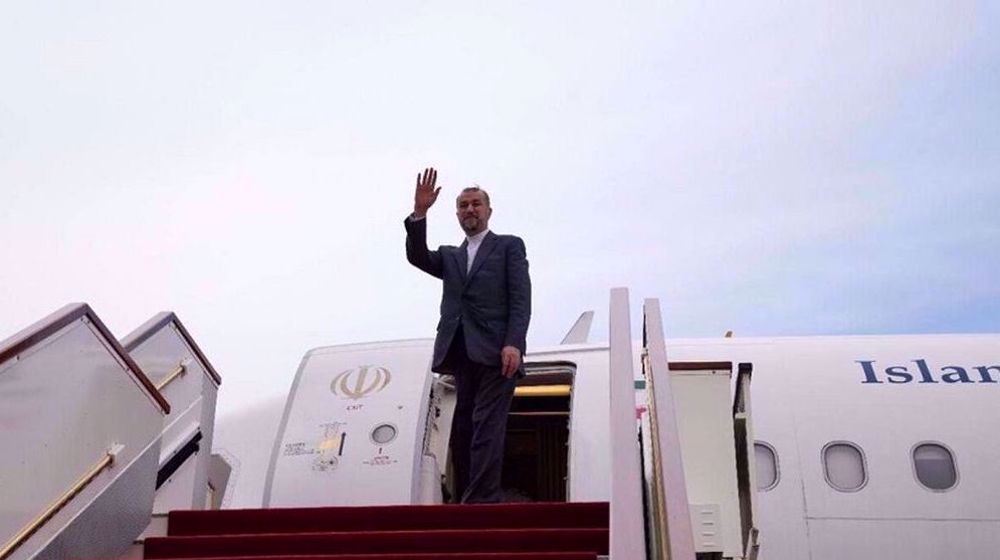
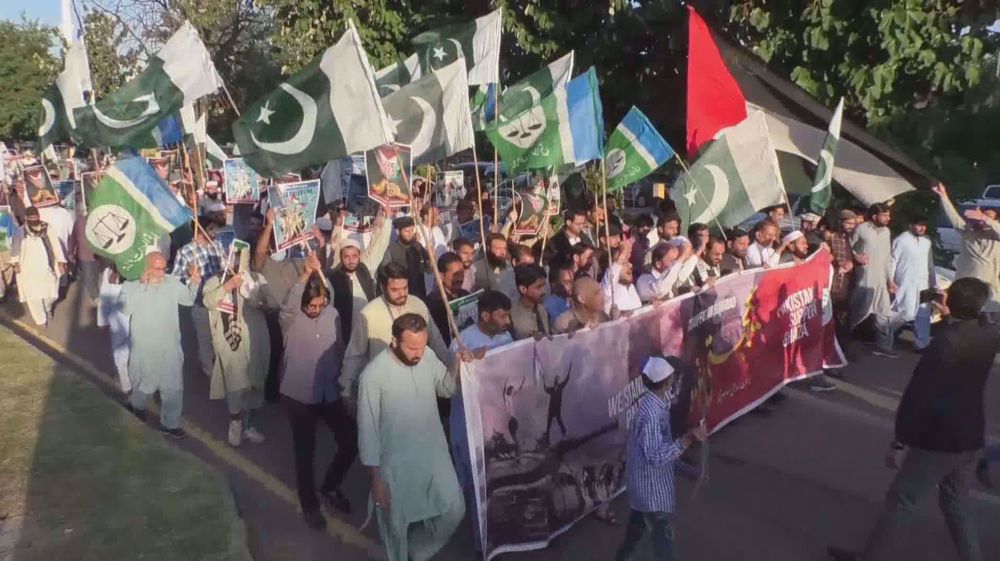
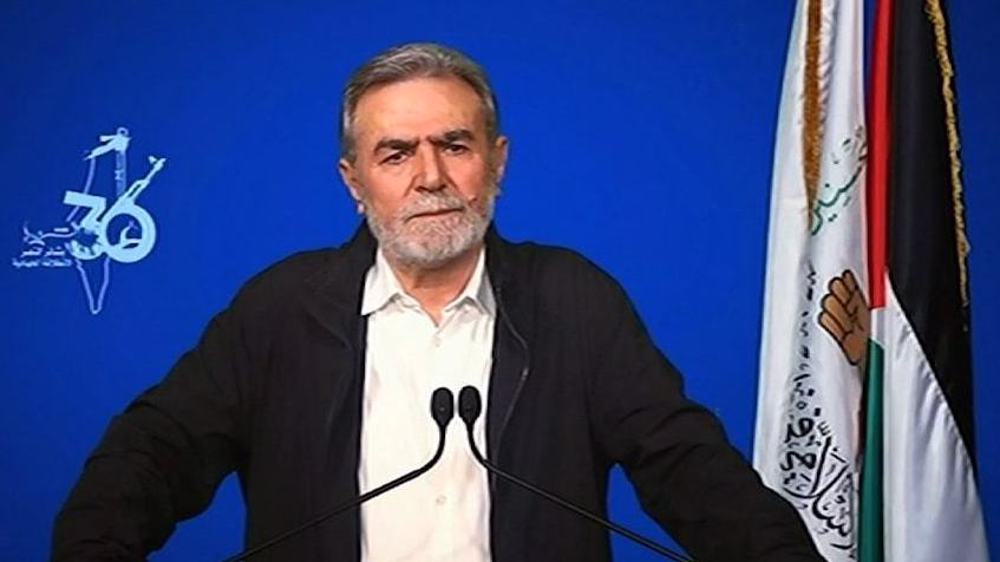
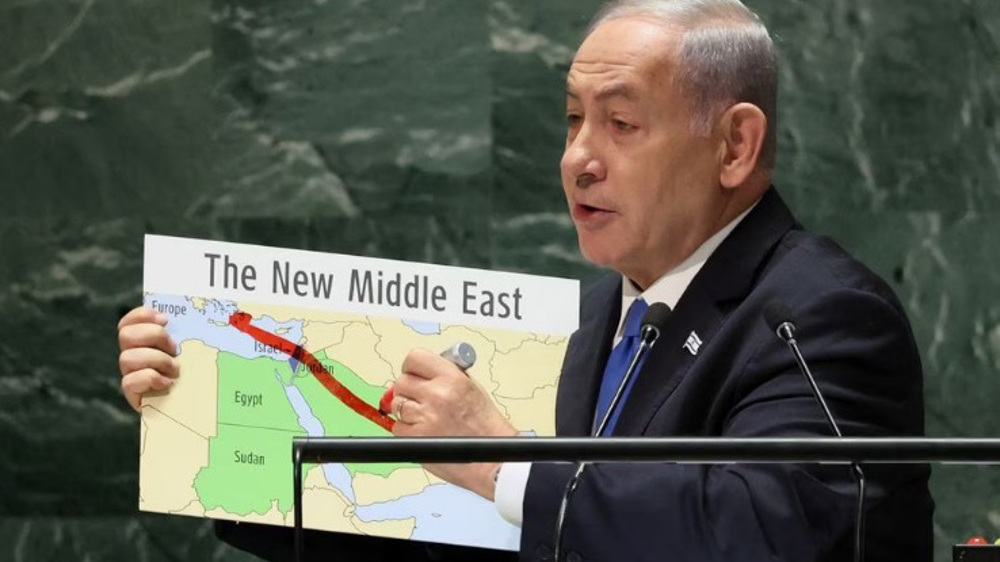

 This makes it easy to access the Press TV website
This makes it easy to access the Press TV website